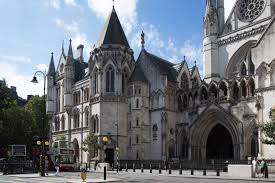27 June 2019
Order of Death
Clash of rules.
By Robert Kilconner
There was something pleasantly old-fashioned about the Probate, Divorce and Admiralty division of the High Court. It was a logical grouping, of course, bringing the various forms of shipwreck under the same panel of Judges, but alas this didn’t save it when the Courts came to be reorganised. Then divorce went to the Family Division, Admiralty is now part of Business and Property, and Probate, left on the shelf, has a division all to itself. Now you might think that probate law is dull but actually many of the issues raised are both accessible and interesting to the layman.
Take the case of Cutler v Winter, for example, as described in yesterday’s The Times. The background is tragic enough, an elderly couple Mr and Mrs Scarle having been found dead of hypothermia in their house at Leigh-on-Sea. What makes it interesting is that neither of them had made a will and it is wholly unclear in which order they died.
There is a £280,000 house at stake and each of the elderly couple had a child or children by a previous marriage. According to The Times, on the death of the first of them the survivor would have inherited the house and on the subsequent death the property would have passed to the survivor’s next of kin. If Mr Scarle died first that would be his stepdaughter Deborah Cutler. If Mrs Scarle died first it would be Anna Winter and her brother. Obviously there was no question of the two sides of the family splitting the inheritance between them. People don’t behave like that in St Mary Mead, oops, sorry, Leigh-on-Sea, and in any case it would quite spoil the story. So off to the High Court they went.
One of the oddities of probate law is that it operates according to very formal rules and that intention is more or less left out of account. That is no doubt because the best witness to the testator’s intentions is unavailable and no judge in his right mind would want to hear continual evidence of the “auntie loved me best and hated the rest of the family” variety. So the law is a bit more rigid than usual and that makes it easier to follow.
In the best crime fiction you can only understand the solution by looking back at the history of the matter, and the first question here is why it was that on the death of one spouse the whole property would have passed to the other. It is often thought that on the death the assets of the deceased go to his or her spouse, but where the value of the estate exceeds £250,000 that is wrong. Under the intestacy rules, where there are children, the spouse gets the first £250,000 together with personal items and one half what is left over. Now here the house was worth £280,000 so that you might think that there would be a split £265,000: £15,000 one way or the other but the article makes no mention of that. Possibly that is because the house, which the Scarles had bought together, was held by them as joint tenants (in which case the survivor automatically becomes entitled to the whole of it on the death of the other owner) rather than tenants in common (where a dying owner’s interest falls into his estate). “Mes certainement, mes amis. That is most usual”.
So, to the centre of the case, the order of death. Although the bodies were found on 11th October, at least one of them was probably alive on the 7th as a card from Ms Cutler for their wedding anniversary (which fell on that day) had been opened. The question was which (or possibly both). The state of the bodies indicated that Mrs Scarle had probably died first so if the balance of probabilities was taken as the test Anna Winter should inherit. But enter stage left the “commorientes rule” from the Law Property Act 1925 which stated that in cases of uncertainty the older is presumed to have died first. That would favour Ms Cutler.
So how strong does the probability have to be to displace the “commorientes rule”? That is the question which Judge Philip Kramer has to decide. Goodness knows how much of the property will be left once all the lawyers have been paid but in any case, by Court of Probate standards, his judgement should be a rattling good read.


